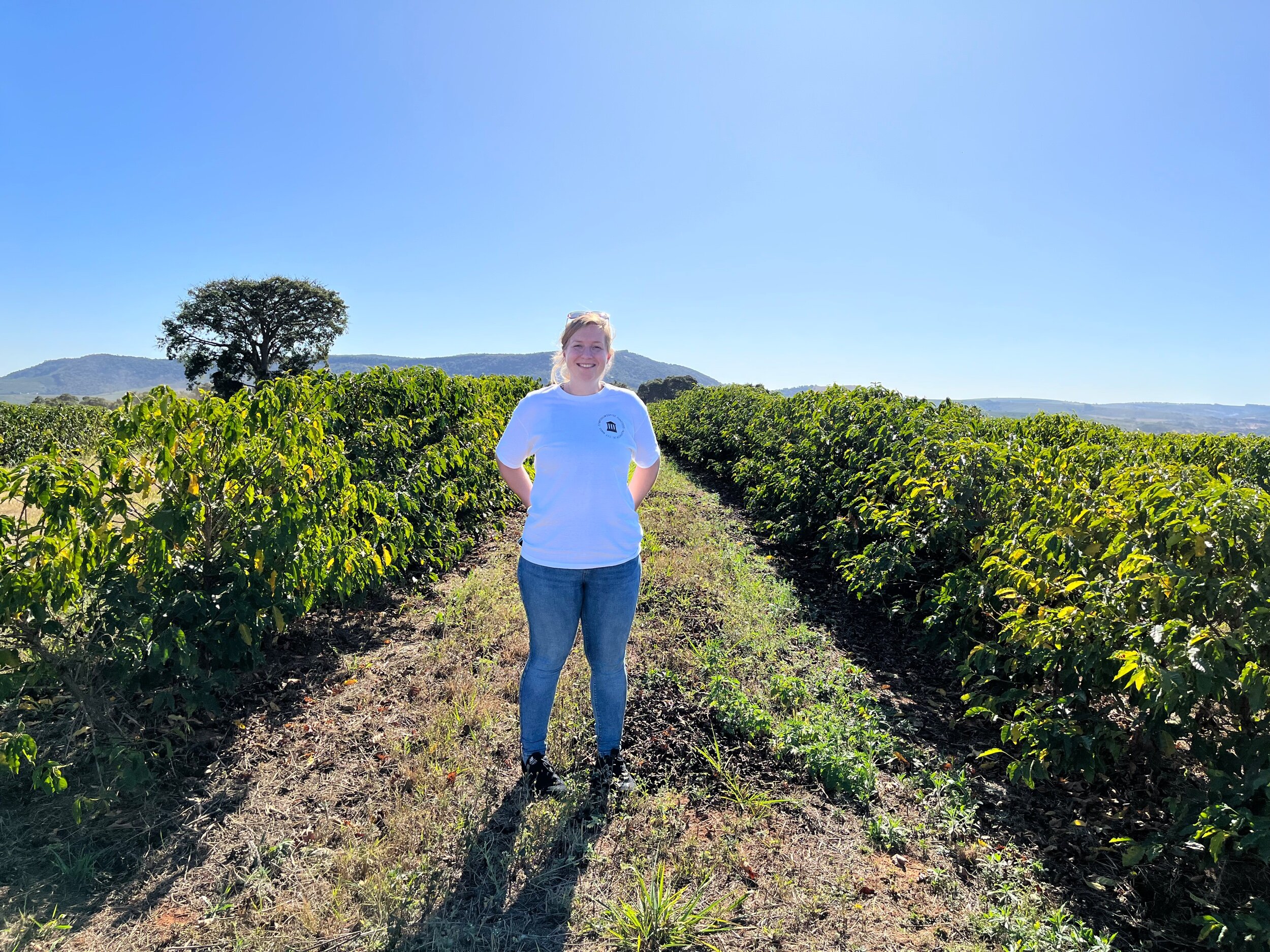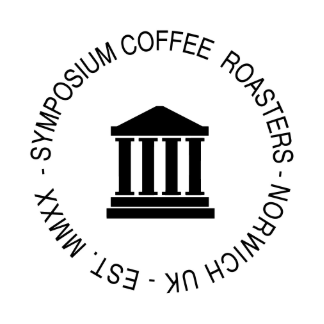 Image 1 of 4
Image 1 of 4

 Image 2 of 4
Image 2 of 4

 Image 3 of 4
Image 3 of 4

 Image 4 of 4
Image 4 of 4





Brazil, Rancho Grande
The first of our new Brazil offerings starts with Rancho Grande which is a versatile coffee and works well as a filter or espresso.
We had the opportunity to visit this farm on our origin trip to Brazil in 2022 and meet the family behind this coffee.
Producer: José Carlos Reis and his son Flávio (Fafa) Reis
Origin: Tres Pontas, Sul De Minas
Varietal: Topazio
Altitude: 970 metres above sea level
Process: Natural
Flavours: Orange, lime, caramel, milk chocolate, hazelnut
Cup Score: 83.25
Where is it from?
Coffee production began at the Rancho Grande Farm in 1933, when Mr. Aneite Reis inherited 5 hectares of crops to start production. Today, the farm is run by José Carlos Reis and his son Flávio (Fafa) Reis, both son and grandson of Mr. Aneite. The farm is diversified with cows for dairy and meat production. The mission of the farm is to responsibly produce coffee of the highest possible quality without neglecting the importance of protecting the environment and caring for the well-being of its employees. Several employees live on the farm in houses provided with subsidised electricity and food. On the farm, they are open to change and trying new techniques and they have invested in several static drying boxes to help improve the quality & profile of the coffee they could produce. They have been working hard on improving the quality of their coffees for the speciality market and working on all aspects of the production from the growing, picking and post-harvest treatment.
In the 2019 harvest in collaboration with Fafa and his team at Rancho Grande, Cocatrel Direct and Falcon began some experimental processing methods to start testing the boundaries of what was possible for the coffees from this farm. Initially Cocatrel Direct had some very good results from using the new static boxes to help slow fermentation and drying down to create profiles not commonly associated with these styles of coffees. Building on their initial work and adding another layer of pre-anaerobic fermentation before drying in the static boxes they have managed to produce some coffees that really shine in the cup quality. This range of coffees is named after a breed of horse 'Manga Larga' known in this region for its high quality and special attributes that are part of the history and story at Rancho Grande.
Once the coffee has been mechanically harvested it is then separated using density which separates the levels of ripeness. The boia ripe cherry) and boian (slightly over-ripe) are then chosen to be put into the static drying boxes. These are 1 m deep boxes with a capacity for a 15000-litre volume of cherry which equates to 25-30 bags of green coffee. The boxes have a vented grill at the bottom to allow for air to be circulated from below up through the drying coffee. The coffee is slowly dried in this lot for 11 days at a temperature of 35 degrees until 11.6% moisture in the cherry. The coffee is then left to rest for 26 days and stabilise losing a little more moisture to below 11% before it is then milled. This method has allowed the production of more fruity and prominent profiles from the usual profile we associate with a Brazilian natural.
Each year the local families who work on the farm will also receive a bonus at the end of the Harvest once the coffee is sold. As part of their commitment to the families and to improving the social conditions on the farm, the worker's houses were also rebuilt in 2009 & 2010 to provide better living conditions. The children living on the farm also receive transportation each day to help them to and from their local school. This lot of Yellow Catuai was selected both mechanically and by hand depending on the section of the farm. From here it is then separated by ripeness and then taken to a patio where it dries for 10 - 15 days
The first of our new Brazil offerings starts with Rancho Grande which is a versatile coffee and works well as a filter or espresso.
We had the opportunity to visit this farm on our origin trip to Brazil in 2022 and meet the family behind this coffee.
Producer: José Carlos Reis and his son Flávio (Fafa) Reis
Origin: Tres Pontas, Sul De Minas
Varietal: Topazio
Altitude: 970 metres above sea level
Process: Natural
Flavours: Orange, lime, caramel, milk chocolate, hazelnut
Cup Score: 83.25
Where is it from?
Coffee production began at the Rancho Grande Farm in 1933, when Mr. Aneite Reis inherited 5 hectares of crops to start production. Today, the farm is run by José Carlos Reis and his son Flávio (Fafa) Reis, both son and grandson of Mr. Aneite. The farm is diversified with cows for dairy and meat production. The mission of the farm is to responsibly produce coffee of the highest possible quality without neglecting the importance of protecting the environment and caring for the well-being of its employees. Several employees live on the farm in houses provided with subsidised electricity and food. On the farm, they are open to change and trying new techniques and they have invested in several static drying boxes to help improve the quality & profile of the coffee they could produce. They have been working hard on improving the quality of their coffees for the speciality market and working on all aspects of the production from the growing, picking and post-harvest treatment.
In the 2019 harvest in collaboration with Fafa and his team at Rancho Grande, Cocatrel Direct and Falcon began some experimental processing methods to start testing the boundaries of what was possible for the coffees from this farm. Initially Cocatrel Direct had some very good results from using the new static boxes to help slow fermentation and drying down to create profiles not commonly associated with these styles of coffees. Building on their initial work and adding another layer of pre-anaerobic fermentation before drying in the static boxes they have managed to produce some coffees that really shine in the cup quality. This range of coffees is named after a breed of horse 'Manga Larga' known in this region for its high quality and special attributes that are part of the history and story at Rancho Grande.
Once the coffee has been mechanically harvested it is then separated using density which separates the levels of ripeness. The boia ripe cherry) and boian (slightly over-ripe) are then chosen to be put into the static drying boxes. These are 1 m deep boxes with a capacity for a 15000-litre volume of cherry which equates to 25-30 bags of green coffee. The boxes have a vented grill at the bottom to allow for air to be circulated from below up through the drying coffee. The coffee is slowly dried in this lot for 11 days at a temperature of 35 degrees until 11.6% moisture in the cherry. The coffee is then left to rest for 26 days and stabilise losing a little more moisture to below 11% before it is then milled. This method has allowed the production of more fruity and prominent profiles from the usual profile we associate with a Brazilian natural.
Each year the local families who work on the farm will also receive a bonus at the end of the Harvest once the coffee is sold. As part of their commitment to the families and to improving the social conditions on the farm, the worker's houses were also rebuilt in 2009 & 2010 to provide better living conditions. The children living on the farm also receive transportation each day to help them to and from their local school. This lot of Yellow Catuai was selected both mechanically and by hand depending on the section of the farm. From here it is then separated by ripeness and then taken to a patio where it dries for 10 - 15 days
